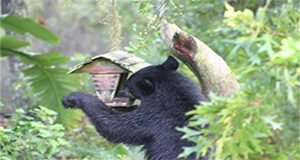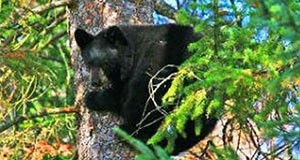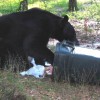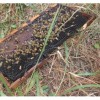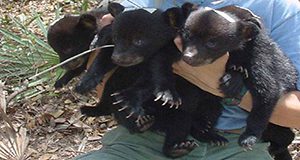
The Florida black bear and the coyote are both prevalent throughout the state of Florida. The number one cause of human-wildlife conflict for these two species are food attractants, including pet food. This 2-page fact sheet written by Kelley C. Anderson and Elizabeth F. Pienaar and published by the UF/IFAS Department of Wildlife Ecology and Conservation explains how to secure pets and pet food against both the Florida black bear and the coyote and keep people, pets, and wildlife safe.
edis.ifas.ufl.edu/uw437
